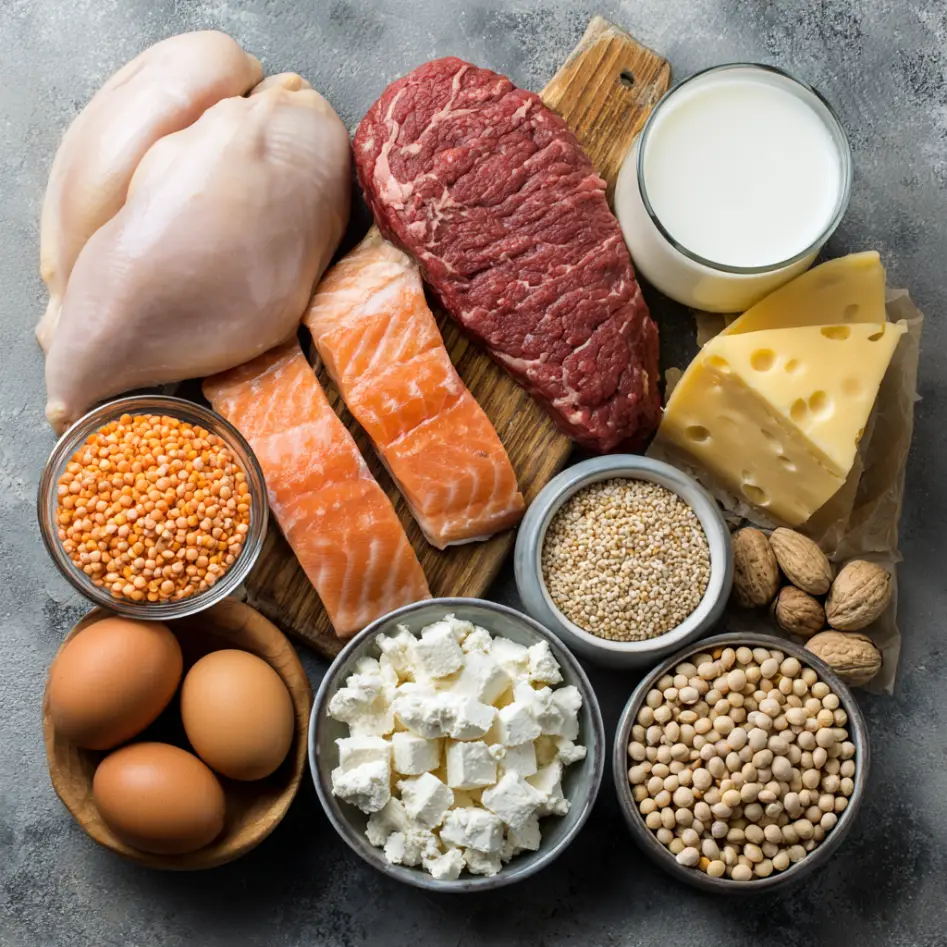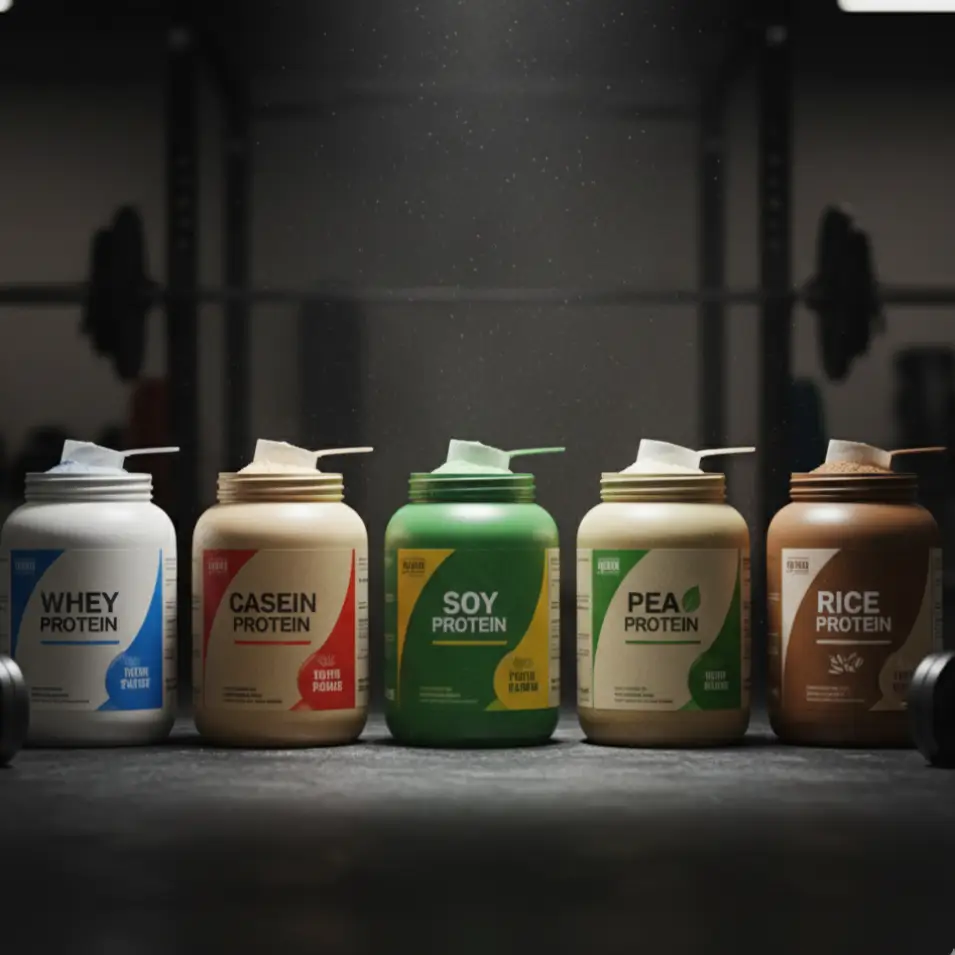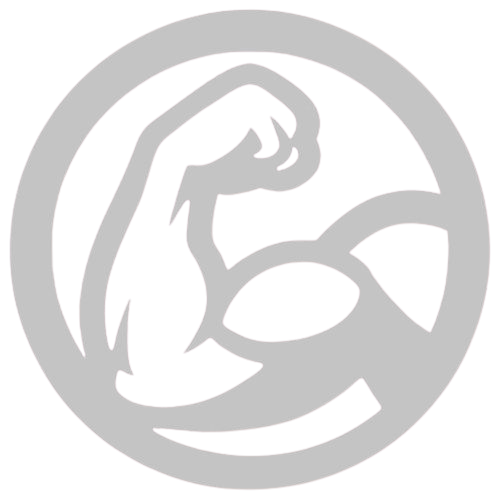Protein is the backbone of every fitness plan. It fuels recovery, supports muscle growth, and keeps hunger under control. But the debate between best high-protein foods vs supplements never ends. Should you rely on chicken, eggs, and lentils, or is a scoop of whey protein powder enough? In this guide, we compare foods and supplements using science, cost, and real-world gym experience so you can make the smartest choice.

Table of Contents
Protein Basics – Why It Matters
Protein’s Role in Growth, Recovery, and Performance
When you lift weights, you create tiny tears in your muscle fibers. Protein repairs those fibers, making them stronger and thicker. Without enough protein, recovery slows and muscle growth stalls. Protein also improves satiety, helps regulate hormones, and even boosts metabolism. For exact intake recommendations, check How much protein do you need.
Protein Quality and Bioavailability Explained
Not all protein is created equal. A protein bioavailability chart ranks foods based on amino acid profile and absorption. Eggs, whey, and beef rank at the top, while lentils and rice score lower. Pairing plant proteins (like rice + beans) improves their amino acid balance.
Best High-Protein Foods vs Supplements in Everyday Diets
Best Protein Foods for Muscle and Health
Animal proteins like chicken breast, salmon, lean beef, and eggs provide complete amino acid profiles and are easy to digest. Dairy (Greek yogurt, cottage cheese) adds calcium and probiotics.
Vegetarian sources — lentils, tofu, tempeh, chickpeas, and quinoa — offer strong alternatives. To see how different diets affect protein needs, read Protein for different diets.
Top 10 Protein-Rich Foods Compared to Supplements
| Food | Protein per 100g |
|---|---|
| Chicken breast | 31g |
| Eggs | 13g |
| Salmon | 20g |
| Lean beef | 26g |
| Greek yogurt | 10g |
| Lentils | 9g |
| Chickpeas | 8.9g |
| Tofu | 8g |
| Quinoa | 4g |
| Cottage cheese | 11g |
These are the top protein foods, compared directly to shakes for practicality.

Supplements – Where They Outperform Foods
Whey Protein vs High-Protein Foods
Whey protein is one of the fastest-digesting and most bioavailable protein sources. Compared to chicken or beef, whey spikes amino acid levels faster, making it ideal post-workout. Read the full comparison in Whey vs plant protein.
Best Protein Powder Options vs Whole Food Protein
- Whey isolate: Pure, lactose-free, fast digestion
- Casein: Slow release, best before bed
- Soy: Vegan, complete amino acid profile
- Pea + rice blends: Strong plant-based alternatives
Details in Best protein powder for beginners.

Natural Protein vs Powder – Science and Real Opinions
Nutrient Density in High-Protein Foods vs Supplements
Whole foods bring more than protein — salmon adds omega-3s, eggs carry vitamins, lentils deliver fiber. Protein powders strip down to pure protein, sacrificing micronutrients.
Reddit’s Take on Natural Protein vs Protein Powder
In Protein powder vs natural protein Reddit debates, lifters often agree: foods should form the base, while powders are tools. The balance is what matters.
Cost and Accessibility of Best High-Protein Foods vs Supplements
Price Breakdown – Foods vs Powders per 20g Protein
| Source | Cost per 20g Protein |
|---|---|
| Whey protein (bulk) | $0.70 |
| Chicken breast | $1.50 |
| Eggs | $1.20 |
| Greek yogurt | $1.80 |
Convenience in Real Life: Shakes vs Meals
Shakes shine during travel, work, or late-night recovery. Meals win for nutrition, flavor, and satiety.
Timing Your Protein Intake
When High-Protein Foods Work Best
Meals rich in protein should anchor your breakfast, lunch, and dinner. Eggs in the morning, chicken or tofu midday, salmon or lentils at night. For more strategies, see Protein timing and recovery.
When Supplements Give Better Results
Supplements fit post-workout for fast absorption or before bed for slow digestion (casein). They also help when appetite is low.
Tailoring Protein Choices to Your Goals
Best High-Protein Foods vs Supplements for Weight Loss vs Muscle Gain
For fat loss, whole foods are better because they increase satiety. For muscle gain, powders help boost intake without overeating. More at Protein for weight loss vs muscle gain.
Men vs Women: Protein Strategies That Work
Women often benefit from lighter isolates, while men may prefer blends for bulking. More at Protein supplements for women vs men.
Clearing Up Protein Myths
Myths About Protein Supplements vs Whole Foods
- “Protein powders damage kidneys” → False for healthy individuals.
- “Supplements replace food” → Wrong. Foods must stay primary.
Read Protein myths debunked.
How to Read Labels on Protein Powders vs Foods
Check serving size, grams per scoop, amino acid breakdown, and avoid added sugars. Full guide: How to read protein supplement labels.
Conclusion
The debate between best high-protein foods vs supplements isn’t about one winner. Whole foods give nutrition, satiety, and variety. Supplements provide convenience and precision. Together, they create a flexible, effective plan for muscle growth, recovery, or fat loss.
FAQs
Protein powder vs natural protein Reddit – what do people say?
Most users agree powders are convenient but shouldn’t replace real meals.
What are the best protein foods?
Eggs, chicken breast, salmon, Greek yogurt, lentils, and tofu stand out.
What are the top 10 protein foods?
See table in PART 2. It covers both animal and vegetarian sources.
Is whey protein the best?
Yes for digestibility and leucine content, but not essential for everyone.
Visit my Instagram account for more
